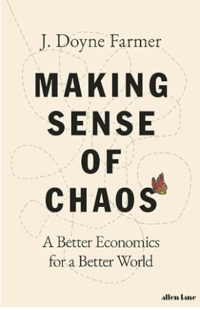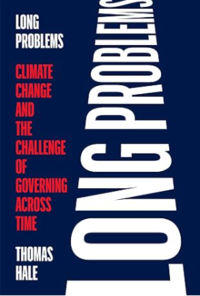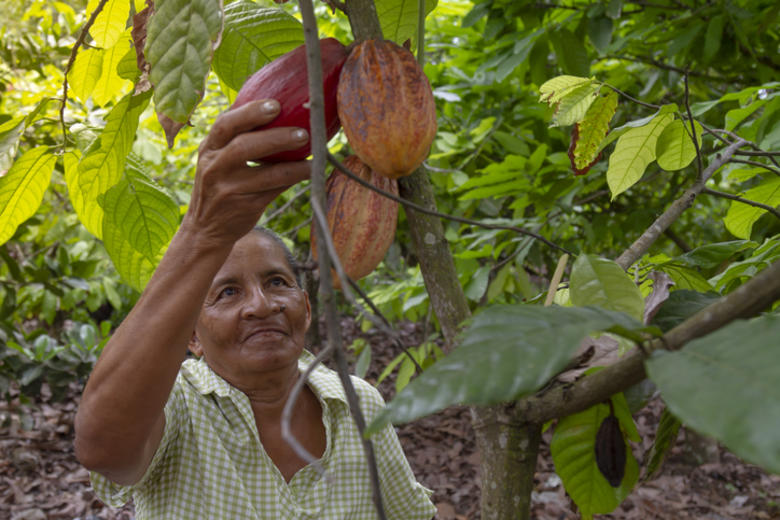OFF THE SHELF: APRIL 2024

OFF THE SHELF: APRIL 2024
This month counter-terrorism, art history, mystery novels, climate policy and complexity economics
Published: 4 April 2024
Author: Richard Lofthouse
Share this article

Edgar Wind: Art and Embodiment by Jaynie Anderson (editor), Bernardino Branca (editor), Fabio Tononi (editor) (Peter Lang, 2024)
The first woman Rhodes Fellow at St Hugh’s College, Professor Emerita Jaynie Anderson (St Hugh’s, 1969), University of Melbourne, is now a co-editor and author of a book about the first professor of art history at the University, Edgar Wind. Edgar Wind (1900–1971) was a cosmopolitan scholar who made important contributions to many disciplines, including philosophy, Renaissance art history and modern art criticism. This book is the first comprehensive study in English of Wind’s intellectual achievements, and is available as a 442-page paperback.
Making Sense of Chaos: A Better Economics for a Better World by J Doyne Famer (Allen Lane, April 2024)
In 1975 J Doyne Farmer (Baillie Gifford Professor of Mathematics, University of Oxford) dropped out of physics grad school to play roulette. Armed with the world’s first wearable computer, which a team he led designed, he consistently beat the house. Now this pioneer in chaos and complexity theory has designs on bigger things than casinos. Introducing the new field of complexity economics, he describes how rebellious economists and other scientists are revolutionising our ability to predict the economy, developing new approaches to global problems – like climate change, inequality, and the devastating impact of financial crises, which hit the poorest hardest. These issues are all rooted in the economy, yet mainstream economics isn’t helping to solve our most pressing problems. Farmer explains why it can’t do the job, and suggests a better alternative, called complexity economics. Complex systems are characterized by emergent phenomena – creating a whole that is qualitatively different from the sum of its parts. Examples are the human brain, the weather system, and of course, the economy. The ideas behind complexity economics have been around for many years, but enabled by enormous improvements in computing power and big data, its time has come.


Long Problems: Climate Change and the Challenge of Governing across Time by Thomas Hale (Princeton University Press, April 2024)
Climate change and its consequences unfold over many generations. Past emissions affect our climate today, just as our actions shape the climate of tomorrow, while the effects of global warming will last thousands of years. Yet the priorities of the present dominate our climate policy and the politics surrounding it. Even the social science that attempts to frame the problem does not theorise time effectively. In this pathbreaking book, Thomas Hale (Professor in Public Policy, University of Oxford) examines the politics of climate change and other “long problems.” He shows why we find it hard to act before a problem’s effects are felt, why our future interests carry little weight in current debates, and why our institutions struggle to balance durability an adaptability. With long-term goals in mind, he outlines strategies for tilting the politics and policies of climate change toward better outcomes.
Globalisation “widened” political problems across national boundaries and changed our understanding of politics and governance. Hale argues that we must make a similar shift to understand the “lengthening” of problems across time. He describes tools and strategies that can, under certain conditions, allow policymakers to anticipate future needs and risks, make interventions that get ahead of problems, shift time horizons, adapt to changing circumstances, and set forward-looking goals that endure. As the climate changes, politics must, too. Efforts to solve long-term problems―not only climate change but other issues as well, including technology governance and demographic shifts―can also be a catalyst for a broader institutional transformation oriented toward the long term. With Long Problems, Hale offers an essential guide to governing across time.
Does Counter-Terrorism Work? by Richard English (Oxford University Press, March 2024)
State responses to terrorism have shaped politics and society globally. But how far, and in what precise ways, has counter-terrorism actually succeeded? Based on Professor English's (Keble, 1982) experience of studying terrorism and counter-terrorism for over three decades, Does Counter-Terrorism Work? offers an historically grounded, systematic, and expert interrogation of the effectiveness of state responses to terrorist violence.


Priesthole, by Jane Anstey (Wings ePress, 2024)
The author (Somerville, 1973) has published an atmospheric mystery novel, her fifth. Set in Cornwall where Jane found herself at the outbreak of COVID, the plot is rural, intergenerational and has elements of re-assessment of family relations and a World War One component. It’s her third book in a series of mysteries with a central character who is himself an Oxford alumnus.
Off the Shelf typically concerns books where there is an Oxford connection, whether the place, the University or of course the author. Our editorial selection rests on books appealing to the broadest alumni audience.
For more recommended books from Oxford academics and alumni, head over to the @oxfordalumni social channels on Instagram, Facebook and X.
Alumni can claim 15% discount in any Blackwell's store with a My Oxford Card.
Alumni can claim 20% discount at Oxford University Press.
Join the Oxford Alumni Book Club at: www.alumni.ox.ac.uk/book-club















